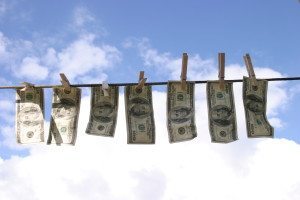 For those of you who are not convinced about the importance of legal ethics in modern society, I urge you to watch yesterday’s broadcast of the story entitled Anonymous, Inc., which was shown on CBS’s 60 Minutes.
For those of you who are not convinced about the importance of legal ethics in modern society, I urge you to watch yesterday’s broadcast of the story entitled Anonymous, Inc., which was shown on CBS’s 60 Minutes.
The venerable weekly news program used a fake client representative, wired with a hidden camera and a false story, who worked his way into the offices of various law firms in New York City. The “client” purported to be a representative of an unnamed representative of the government of a poor West African nation.
According to the fake client representative, who stated that the name of the end client had to remain anonymous, the “client” had millions of dollars. It was strongly suggested by the client’s representative that the source of the client’s money was illegitimate. The goal of the client, according to the representative, was to turn this cash into property in the United States, including a town house, airplane and yacht, and to do so in a way that the client’s identity would not be revealed.
The point of the story was to show how relatively easy it is for individuals who have money of questionable origin to obtain the advice of legal counsel in the United States on how to set up legal entities to help turn ill-gotten gains into assets that appear to be legitimate by “moving the dirty money through a maze of dummy corporations and offshore bank accounts that conceal their identity and the source of the funds.”
According to the story on 60 Minutes, most of this money laundering activity “would never happen without the help — witting or unwitting — of lawyers, accountants and incorporators; the people who actually create these anonymous shell companies and help move the money.”
The pitch, which was orchestrated through a U.K. non-profit called Global Witness, was intentionally designed to give the lawyers reason to suspect the “client’s money came from some type of corrupt activity.”
Only one of the lawyers who was secretly taped actually turned down the representation outright. “Aside from that one exception, 12 out of the 13 law firms, including 15 out of the 16 lawyers, not only heard [the client representative] out, they suggested ways that the suspicious funds could be moved into the U.S. without compromising the minister’s identity.”
While some of the lawyers appeared quite interested and enthusiastic in the matter, no laws were broken (at least not by the lawyers themselves) and no lawyer actually agreed to represent the “client” in his endeavor.
According to the report:
Banks in America are required to know their customer or required to be very cognizant of risk and to report on it if there, if there is an issue there around money laundering. And yet, absolutely bizarrely, American lawyers aren’t. This is clearly an issue. And I think our investigation has shown the potential for what could happen because of that lack of regulation.
 The “spin” put on by 60 Minutes was that the lawyers did something illegal or unethical. But according to Global Witness, the point of the undercover investigation was that the laws in this country need to be changed.
The “spin” put on by 60 Minutes was that the lawyers did something illegal or unethical. But according to Global Witness, the point of the undercover investigation was that the laws in this country need to be changed.
That may be easier said than done.
One of the ethical dilemmas that applies to lawyers, but not bankers, is the attorney’s duty of confidentiality, pursuant to ABA Model Rule 1.6. On the other hand, lawyers may not knowingly aid or abet a client in perpetrating a crime. Between these two ends lies an ethical gray area, although it appears under current regulations that unless a lawyer knows that a client is using the client’s services to perpetuate a crime, any duty to report would run afoul of the attorney’s duty of confidentiality.
It should be further noted as well that a bill had been floated at one time in Congress requiring that all real property owned in the United States be recorded in the name of the true beneficial owner of the property. As reported on last night’s broadcast, however, the American Bar Association resisted the bill, which never made it out of Committee.
According to a New York Times article published about the 60 Minutes broadcast, “It wasn’t hard to find lawyers to suggest ways to move suspect funds into the United States,” said Stefanie Ostfeld, a spokeswoman for Global Witness. “We went undercover because it is the only way we could show what really happens behind closed doors. The findings speak for themselves — something urgently needs to change.”
Excellent articles. Great writing in terms of information, brevity, style. I wish I could write like you. Thanks for sharing this great information. Cheers. Dave